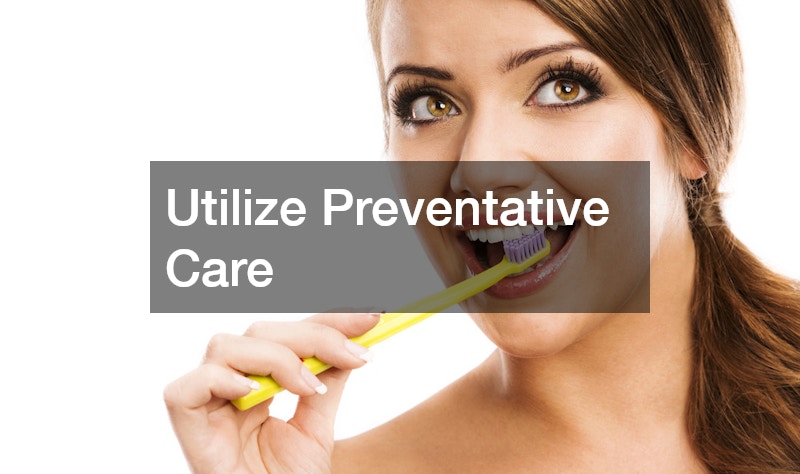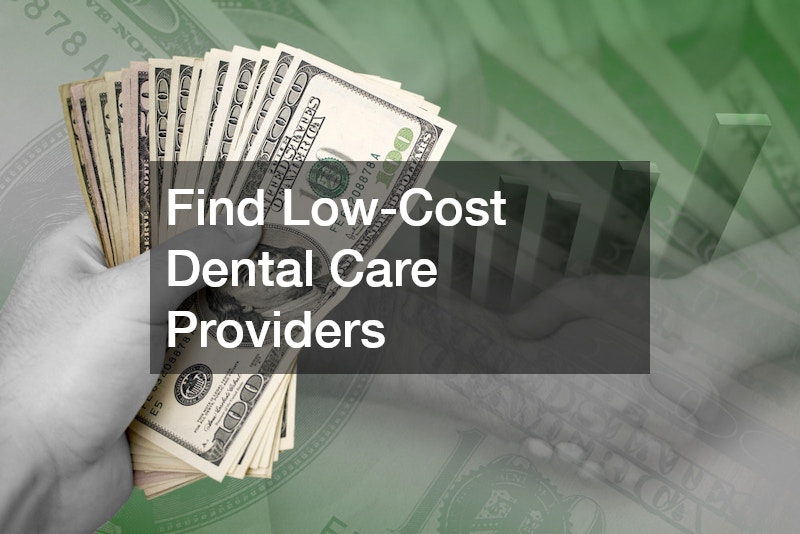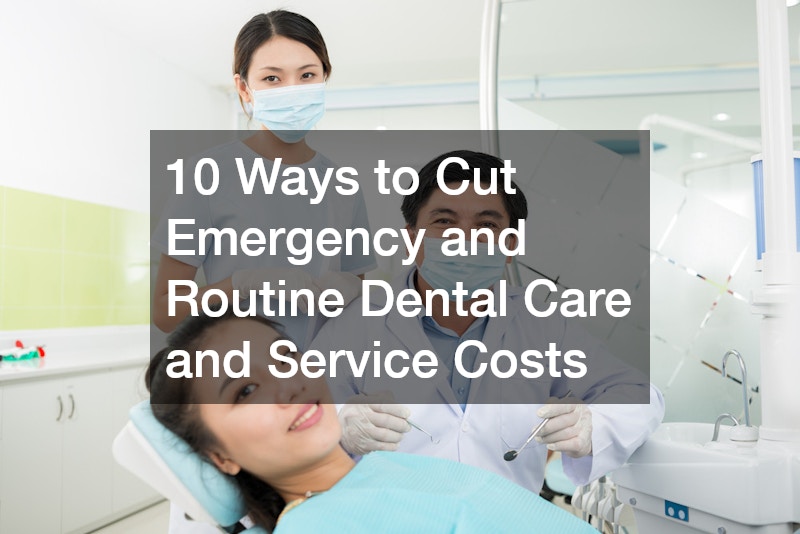Dental care is a critical aspect of maintaining overall health, yet many people are burdened by its high costs. Whether it’s an unexpected dental emergency or routine checkups, the expenses can pile up quickly, making it essential to explore effective ways to reduce these costs while still receiving high-quality care. By taking advantage of preventative measures and considering alternative approaches to dental care, individuals and families can save significantly on both routine and emergency services. Maintaining good oral health doesn’t have to come at a high cost. By utilizing preventative care, exploring affordable insurance alternatives, and considering home-based dental procedures, you can significantly reduce dental care expenses. Additionally, seeking out low-cost providers, taking advantage of discounts, and using flexible spending accounts can help manage costs effectively.
Emergency dental care, such as treatments for sudden tooth pain, infections, or injuries, often comes with a hefty price tag because it requires immediate attention. However, many of these emergencies can be avoided with regular dental maintenance and planning. Routine dental care, on the other hand, includes regular cleanings, exams, and small-scale procedures that are vital to keeping your mouth healthy. But even the costs of regular dental care can quickly add up if you’re not strategic about how you approach your oral health.
This article explores 10 practical strategies that can help you reduce the cost of both emergency and routine dental care. From preventive care to dental savings plans, and from affordable providers to healthy habits, there are various options available to maintain excellent dental health without straining your budget. Let’s dive into these cost-saving tips to help you stay on top of your oral health without the financial burden.
1. Utilize Preventative Care

One of the most effective ways to cut down on both emergency and routine dental care costs is to focus on preventative care. Visiting your local dentist regularly for cleanings, exams, and X-rays can help identify potential issues before they escalate into costly problems. Early detection of cavities, gum disease, or tooth decay can prevent the need for more expensive procedures like root canals or extractions down the line.
Preventative care isn’t limited to professional cleanings. Maintaining good oral hygiene at home is crucial. Brushing your teeth at least twice a day, flossing regularly, and using mouthwash can significantly reduce plaque buildup and the risk of cavities. Fluoride treatments, which are often available at your local dentist office, can also help strengthen your teeth and prevent decay.
Don’t forget about preventive measures beyond the typical oral care routine. Wearing a mouthguard during sports, for example, can help protect your teeth from injuries that could lead to expensive emergency dental care. By taking these steps consistently, you reduce the chances of needing costly dental work in the future.
2. Seek Affordable Alternatives to Traditional Dental Insurance
For those looking to save money on consistent dental expenses, exploring affordable alternatives to traditional dental insurance is a smart option. Dental discount plans, for instance, are a cost-effective alternative. These plans offer discounts on dental services in exchange for a small annual or monthly fee. They don’t require deductibles or annual limits, making them an attractive choice for individuals who need consistent dental care but want to avoid high insurance premiums.
Additionally, if you’re employed, it’s worth exploring whether your employer offers healthcare benefits for employees that include dental coverage. Many employers provide dental plans at a reduced cost or may even cover a portion of dental expenses. Group dental insurance plans can be far more affordable than individual plans, helping you reduce the overall cost of routine dental visits.
For those without access to employer-sponsored dental plans, community health centers or dental schools may be an option. These institutions often provide discounted dental care services, performed by students under the supervision of licensed professionals. This allows you to receive quality care at a fraction of the usual cost.
3. Consider Regular Dental Procedures That Can Be Done at Home
While some dental procedures should always be performed by professionals, there are several routine dental tasks that can be safely managed at home. For instance, over-the-counter teeth whitening kits allow you to brighten your smile without the cost of an in-office procedure. Similarly, products like fluoride toothpaste or mouth rinses can help strengthen enamel and prevent tooth decay, which reduces the need for expensive dental work later.
Another common at-home treatment is using desensitizing toothpaste to manage tooth sensitivity. If you experience mild discomfort when eating hot or cold foods, these over-the-counter products can often provide relief without requiring a visit to your primary care dentist.
Of course, home dental care should complement, not replace, professional care. It’s important to maintain regular checkups and consult your dentist if you notice any persistent issues. However, taking care of small dental needs at home can extend the time between professional visits and help reduce the overall cost of your routine dental care.
4. Find Low-Cost Dental Care Providers

For those facing financial constraints, finding affordable dental care providers is essential. Many dental schools offer significantly reduced rates for routine dental services because the procedures are performed by students under the supervision of experienced dentists. Whether it’s cleanings, fillings, or more complex treatments, dental schools can provide high-quality care at a lower price.
Additionally, community health centers or urgent care dental clinics may offer services at a sliding scale based on your income. These clinics often serve individuals who do not have insurance or need immediate care but cannot afford the full cost of treatment. Many of these centers provide basic services like exams, cleanings, and extractions, as well as emergency dental care, making them a valuable resource for those on a tight budget. Researching low-cost dental providers in your area is a great way to save on dental care while still receiving professional treatment.
5. Look Into Dentistry Savings Plans
Dental savings plans are an excellent alternative to traditional insurance for reducing the cost of routine dental care. These plans allow you to pay a small membership fee and, in exchange, receive discounts on a wide variety of dental services, from preventive cleanings to more complex procedures. Unlike traditional insurance, there are no deductibles or annual limits, which means you can save on every visit without worrying about exceeding your coverage.
For families or individuals who require frequent dental work, these savings plans can provide significant financial relief. Dental savings plans often partner with dental labs, so services such as crowns, dentures, or dental implants are included in the discounts. These plans are ideal for those looking for a flexible, affordable way to manage their dental expenses.
Before signing up for a savings plan, make sure to review what services are covered and which dentists in your area participate in the plan. This will help you ensure that you’re maximizing the value of the plan and receiving quality care at a reduced cost.
6. Eat Foods That Can Help Prevent Dental Problems
Your diet plays a significant role in the health of your teeth and gums. Incorporating foods that promote oral health can help prevent cavities, gum disease, and other dental issues, reducing the need for costly routine dental procedures. For example, calcium-rich foods like milk, cheese, and yogurt help strengthen tooth enamel, making your teeth more resistant to decay.
Crunchy fruits and vegetables, such as apples, carrots, and celery, are not only good for your overall health but also act as natural toothbrushes, scrubbing away food particles and bacteria from the surface of your teeth. Foods that are high in water content, such as cucumbers and melons, also help stimulate saliva production, which naturally cleans your teeth and neutralizes harmful acids.
On the flip side, it’s important to limit sugary and acidic foods, which can erode tooth enamel and lead to cavities. By being mindful of what you eat, you can maintain healthy teeth and gums and avoid the need for expensive periodontal care in the future.
7. Take Advantage of Seasonal Promotions and Discounts

Many dental clinics offer promotions and discounts during specific times of the year. Whether it’s back-to-school cleanings for children, holiday promotions, or discounts on cosmetic procedures like teeth whitening, these deals provide an opportunity to save on routine dental care.
By staying connected with your local dentist’s office, either through their newsletter or social media, you can stay informed about any upcoming promotions. Some offices offer discounts for new patients, referrals, or bundled services, allowing you to save more by scheduling multiple procedures at once.
Don’t hesitate to ask about ongoing promotions when booking your appointment. Many clinics offer these discounts to both loyal patients and first-time visitors, making it an excellent way to cut down on dental expenses.
8. See What Dental Treatments Can Be Covered by Health Insurance
While dental insurance typically covers basic preventive and restorative procedures, some dental treatments may be covered by your health insurance as well. For example, if you need dental work as a result of an accident or if a dental issue is affecting your overall health, your health insurance provider may cover part of the cost.
This can be especially helpful when dealing with more expensive procedures, such as dental implants or orthodontics. Always check with both your cosmetic dentist and your health insurance provider to determine whether any of your dental treatments are eligible for coverage under your medical insurance. Knowing what’s covered can help you significantly reduce out-of-pocket expenses and ensure that you’re getting the best value for your dental care.
9. Use Flexible Spending Accounts (FSA) for Dental Expenses
If your employer offers a Flexible Spending Account (FSA), take advantage of it to cover your dental expenses. FSAs allow you to set aside pre-tax dollars to pay for eligible medical and dental expenses, helping you reduce the overall cost of your care. FSAs are particularly useful for covering routine dental visits, as well as more extensive treatments like braces or affordable dentures.
The key benefit of FSAs is that the money you set aside is not subject to income taxes, which means you’re effectively reducing the cost of your dental care by paying with pre-tax dollars. However, keep in mind that FSAs usually operate on a “use it or lose it” basis, meaning you need to use the funds within the calendar year or forfeit them. Planning ahead and budgeting your dental expenses can help you maximize the benefits of your FSA and save on dental care costs.
10. Remember How Regular Dental Care Is Essential for Children

Children’s dental care is crucial for preventing long-term oral health issues. Ensuring that your child receives routine dental care, including cleanings, fluoride treatments, and early orthodontic evaluations, can prevent the need for more costly procedures later on. The sooner dental issues are caught, the easier and more affordable they are to address.
Pediatric dental care is often less expensive than adult care, and many family dentists offer discounted rates for children. Additionally, some dental insurance plans provide free or reduced-cost care for children, including preventive treatments like cleanings and fluoride applications. By staying on top of your child’s dental health, you not only save money but also instill good oral hygiene habits that will last a lifetime.
You can significantly reduce dental care costs for children if you take advantage of preventative care services. Many pediatric dental clinics offer affordable or even free services for children, especially for basic treatments like cleanings and sealants. Regular fluoride treatments, proper brushing techniques, and early orthodontic evaluations can all help minimize the need for costly interventions down the line. Furthermore, enrolling your children in a dental savings plan or ensuring they are covered under your family’s insurance can provide peace of mind and help manage the costs of dental care throughout their childhood.
Prioritizing routine dental care for yourself and your family is essential for preventing serious dental issues and ensuring long-term savings. By following these strategies, you can take proactive steps to reduce your dental care costs, whether for emergencies or routine visits. Maintaining good oral health doesn’t have to be a financial burden, and with a little planning and effort, you can save money without sacrificing the quality of your dental care.


